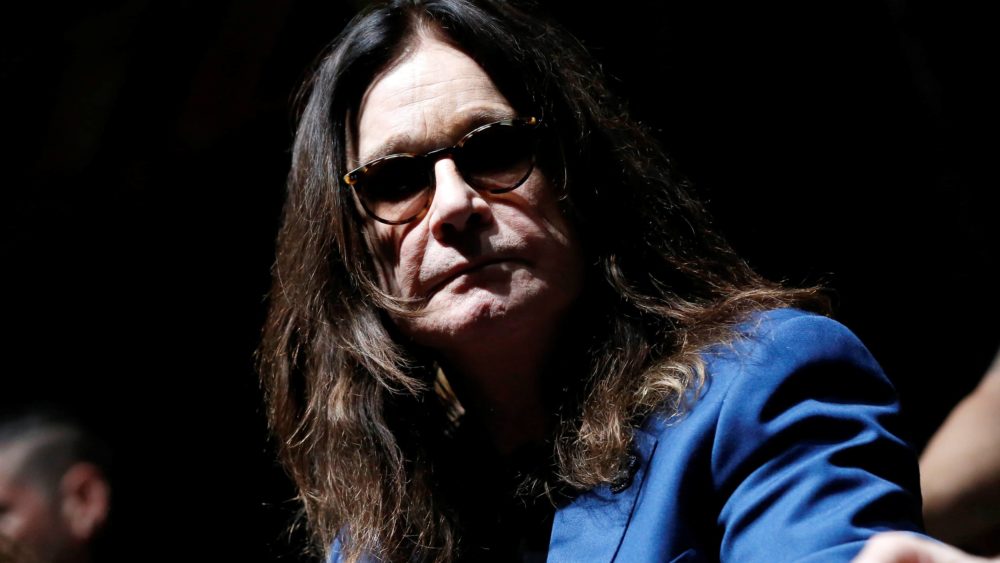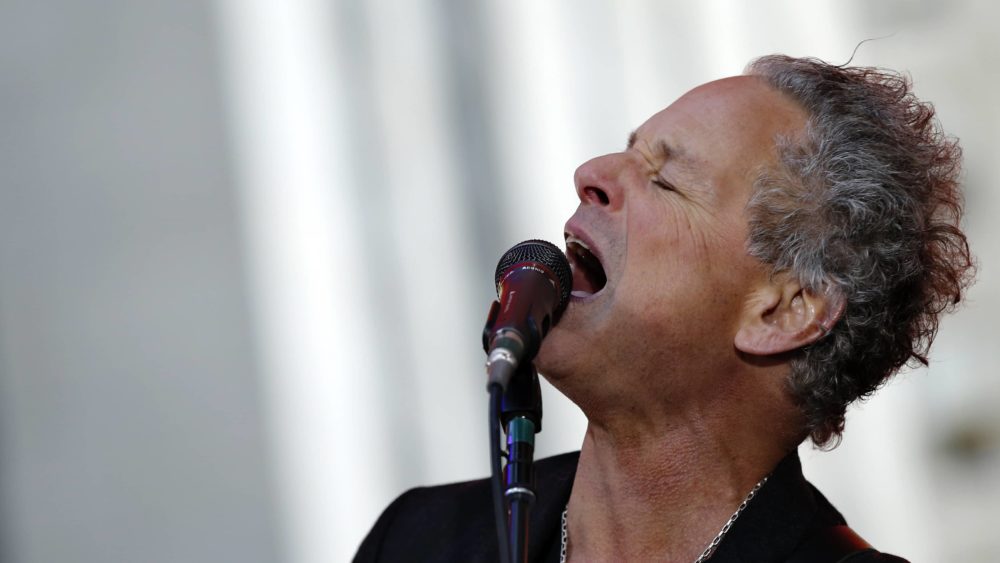

Mick Jagger‘s new song, “Eazy Sleazy,” recorded with Dave Grohl, was written last month.
He tells Rolling Stone, “I wrote the lyrics really quickly: Just the pandemic and hopefully coming out of the pandemic; the-light-at-the-end-of-the-tunnel chorus. It sounded really good and I thought, ‘You gotta put it out now because it’s not gonna be any good in three or six months.’
Photo- Reuters

Ozzy Osbourne got his star on the Hollywood Walk of Fame on April 12th, 2002. The title track from “Diary of a Madman” was inspired by a classical guitar riff Randy Rhoads was playing in the London house they shared.Ozzy credits the late Randy Rhoads with providing the song’s creative spark.
Photo- Reuters

Three years ago today (April 9th), Fleetwood Mac announced that Lindsey Buckingham was no longer in the band. Their song “Go Your Own Way” has a weird beat — and don’t try and dance to it. It was a hit and eventually become a signature Fleetwood Mac song, but Lindsey Buckingham, who wrote it, says that surely wasn’t because the song has a simple beat you can dance to.
Photo- Reuters

20 years ago today (April 7th), the TV special Bruce Springsteen & the E Street Band: Live in New York City aired on HBO. Their breakthrough hit, Born To Run was a surprisingly disappointing one in that it didn’t even crack the Top 20, Bruce’s fourth single, it was his first to crack the Billboard Hot 100, peaking at number-23. “Born to Run” was the only song on the Born to Run album to feature the late E Street Band keyboardist Danny Federici. In 1993, he spoke about his contribution to the song and how sure they were that it would be their breakthrough hit.
Photo-Reuters

Alice Cooper has drank and drugged with the best of them, and it started with one of the best — Jimi Hendrix. Cooper said, “Weed was the first drug, and it was [with] Jimi Hendrix. I’m sitting there after the show…I went to see them. And we were just a little high school band. But they said, ‘Hey, come on up to the hotel room.’ And we were sitting on his bed, and Jimi goes, ‘Here, man,’ [and he passed me the joint]. And I went, ‘Okay.’ And then he goes and puts a quarter in the bed — you know, the vibrating bed. There was, like, eight people sitting on the bed. And he goes, ‘We’re on a spaceship.’ And I went, ‘Okay.'”
And Cooper says his worst drug experience was in his hometown of Detroit.
Listen for more.....
Photo- Reuters

The history of Queen would have been drastically different had they lost two of their founding members to other bands in the early ’70s.
Brian May and Roger Taylor tell about offers they could refuse. Taylor recalls being recruited by Genesis, while May was being wooed by the L.A.-based band Sparks.
Photo- Reuters